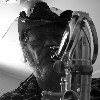
Live vs. recorded music for dementia. Thoughts?
Dad loves his music anyway; he has the stereo playing classical music nonstop (and sometimes real loud), but I've noticed he really comes alive when the music is live.
He likes to go dancing every week, and even though he can't move his feet like he once did he still loves to listen. I'm a musician myself (he's not) and he likes to tag along when my band has practice.
But here's the thing I noticed. He has the dementia, late-middle stage and his short-term memory is practically nonexistent, but after practice last week he was talking to my guitar player and was able to remember -- and reference -- a conversation they had the week before.
Now, I know music is good for someone with dementia, but I'm interested in this difference when it's live over when it's recorded.
Thoughts, anyone?
7 Answers
Popular Questions
- I really want my grandmother to branch out--and to cut back the TV! Has anybody solved this problem?
- In the spirit of coping and adapting, let's share methods we've developed or read about to cope with sheltering in place.
- I feel soooo worn out and alone. What can I do to improve my non-existent life?
One of our favorite groups is Saline Fiddlers, a group of young people who play string instruments faster than anyone I've seen. They perform at free concerts throughout the year.
In one particular community, the performance venue is a small park in the small, historic community. When the musicians begin, it's as if the whole park and the surrounding area are carrying the music and vibrations. It emanates from the stage out into the audience and beyond.
The vibration of the step dancers literally thunders and energizes the audience. Little children gradually move toward the stage and create their own spontaneous versions of dancing. The whole stage is alive with music, excitement, enthusiasm, and healing.
It's an experience that creates a "high" for hours. My father buys the CDs and listens to them regularly. It's wonderful therapy.
We regularly performed at nursing homes. I would stroll and sing, Christy would sit with the people and sing along. In 2010, the last year of Christy's dwindling normalcy, she started appearing in my space as I strolled, so close it almost hindered my playing. It was startling and I couldn't figure why the change in routine.
Now 6 years later I read that it is a manifestation of the disease called 'shadowing'. She continues to shadow me even as she doesn't know me and resents whoever this 'guy' is that manhandles her for toileting, sitting, standing, walking.
From 2011 to just recently, nothing has interested Christy, even music. I kept a harp by the bed and would play songs we had done together but she was oblivious. I bought a ukulele last Christmas for my show and suddenly, it is calming to her.
We have a karaoke system in the living room and she started showing interest in the singers and the music. She actually grinned like a bashful teenager the last time. The next morning she came out of the bedroom, stared at the blank screen longingly for quite a while and called her brother's name, Bill...Bill.
She has not communicated in years.
Music is powerful. Live music, and not raucous.
Live music reverberates in a room differently than when pushed through a speaker. Alto female voice is the most soothing.
It is known that instrumental music is best for studying as the lyrics preoccupy.
Never drums or especially clanging symbols.
I also found a forum of therapeutic musicians; some of them even perform for inmates.
Of course live music is superior to recorded music! There are probably reams of scholarly papers on the subject, but I think for most of us our own experience confirms it.
Mom's NH (and most care centers I've heard of) provides live entertainment several times a month. Mom's favorite is an accordion player.
creativedanger, I don't suppose you can bring in a whole symphony orchestra to play for Dad, and recorded music certainly has its place. But giving Dad some experiences with live music is fantastic!
It might be that long term memories are formed in different parts of the brain vs. short term memories which tend to lapse more quickly with dementia. And if dementia affects those short term brain areas, that makes sense that those events are more quickly forgotten.
Music also stimulates the brain, and it may be (guessing again) that those areas of the brain aren't as affected by dementia as others may be.
Live vs. recorded - from my experience, there's a different level of participation, involvement and stimulation from live music. You're right there, you can see the musicians, you're also able to see and hear other's responses, especially as the feet start tapping.
I think it's a participatory and active participation vs. a passive one.
Might be a similar issue to the excitement of being at a sports event vs. watching; I would think just the excitement of all the other sports fans would be stimulative.
Same with attending a ballet vs. watching on tv (for a ballet lover the latter is no comparison to being in an auditorium and experiencing the excitement as the orchestra warms up).
A person can actually engage with live musicians where as one doesn't normally engage with a tv program or recorded music - that personal aspect just isn't there. Maybe that's it - that it's an opportunity to be with others who share similar interests, and connect with them even on a limited level.
I suspect there would be some interesting studies done sometime on sensory deprivation of people who've been in isolation, away from other people. I imagine that's why POW camps are structured to isolate the prisoners and deprive them of other human contact other than their captors.